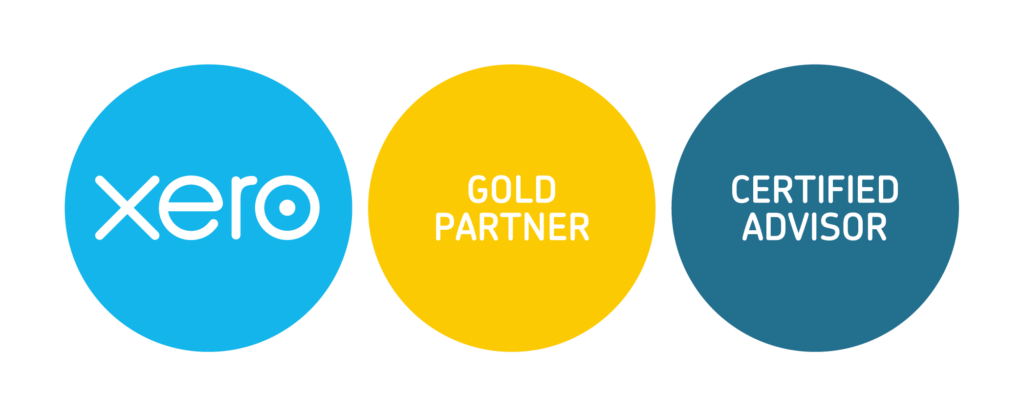CFO GROUP INTEGRATED SERVICES
Local SEO Malaysia Secrets: Get Found, Get Customers, Grow Your Business
CMO Media Lab Pte Ltd • October 29, 2024
Have you ever wondered why your local business struggles to appear in online searches, even with a great website and a fantastic product? In today’s digital landscape, mastering local search engine optimization (SEO) and online marketing strategy can be the key to unlocking your business’s potential and connecting with local customers in your area.
In Malaysia's bustling online marketplace, the competition is fierce, and understanding the intricacies of local SEO efforts is more crucial than ever. With so many businesses competing for the top spots on search engines, even the smallest oversight can result in missed opportunities. From hidden gems in Kuala Lumpur to antique shops in Penang, local businesses vary widely, yet they all face the same challenge.
This article will share proven tips for mastering local SEO in Malaysia, empowering digital marketing efforts, and making your business shine brighter.
Local SEO Uncovered: The Basics Every Business Owner Should Know
Local SEO (Search Engine Optimisation) is a specialized branch of SEO focused on optimizing a website to be found in local search results. It is particularly important for small and medium businesses that operate in specific geographic areas or serve local customers.
Local Search Engines: Your Key to Reaching Targeted Audiences
Local search engines, primarily Google, have integrated features like Google Maps and Google My Business (GMB) to provide users with relevant local results. When someone conducts a local search, these platforms display a list of businesses in the vicinity, often accompanied by maps, user reviews, contact information, and hours of operation. This immediate access to information is crucial for consumers, as it facilitates quick decision-making.
Different Search Engines, Different Strategies
Search engines are invaluable tools in the digital world that help users find the information they need quickly and efficiently.
Here’s a comprehensive look at the different types of search engines Malaysian local businesses use and how they function.
1. Crawler-Based Search Engines
Examples:
Google: Google is the most widely used search engine globally, known for its sophisticated algorithms and vast index of web pages. It offers various services, including search suggestions, personalized results, and specialized searches.
Bing: Microsoft’s search engine aims to provide competitive search capabilities with unique features like video previews and integration with Windows devices.
Yahoo: Once a dominant force in search, Yahoo now relies on Bing for its search results but still offers a comprehensive portal that includes news, finance, and entertainment.
2. Hybrid Search Engines
Hybrid search engines combine the features of crawler-based and human-powered directories. They use automated indexing to gather a wide array of content while incorporating human oversight to enhance the relevance and accuracy of search results.
Examples:
Bing: Bing employs human editorial input to refine its results, providing users with a more relevant search experience
3. Metasearch Engines
Metasearch engines aggregate search results from multiple search engines and present them to users in a consolidated format. They do not maintain their index but query various engines to deliver more results.
Examples:
Dogpile: A popular metasearch engine that pulls results from various sources, allowing users to compare information quickly.
MetaCrawler: Combines results from multiple search engines to offer a comprehensive view of the search landscape.
4. Vertical Search Engines
Vertical search engines focus on specific niches or industries, providing highly targeted search results relevant to particular subjects. They cater to users seeking specialized information, such as job postings, travel deals, or product comparisons. By narrowing their focus, these search engines can deliver more precise results than general search engines.
Examples:
Indeed: A leading job search engine aggregates listings from various sources, helping users find employment opportunities based on location, job type, and salary.
Kayak: Specializes in travel searches, allowing users to compare prices for flights, hotels, and rental cars across multiple travel sites.
5. Shopping Search Engines
Shopping search engines assist users in finding products across various online retailers by aggregating listings and allowing for price comparisons. They typically feature filters for product specifications, prices, and reviews, making it easier for consumers to make informed purchasing decisions.
Examples:
Google Shopping: A service that enables users to search for products across a vast range of retailers, providing price comparisons, product details, and buying links.
PriceGrabber: A dedicated price comparison engine that helps users find the best product deals by aggregating data from various e-commerce sites.
6. Private Search Engines
Private search engines prioritize user privacy by not tracking search history or storing personal data. They aim to provide a search experience that respects user anonymity while delivering relevant results.
Examples:
DuckDuckGo: Known for its strong privacy policies, DuckDuckGo does not track users or personalize search engine results based on their search history, providing unbiased search outcomes.
StartPage Uses Google’s search results while maintaining user privacy. It allows users to search anonymously without their data being collected.
7. Specialized Search Engines
Specialized search engines focus on particular types of content or media, catering to users seeking specific information. These engines can provide more in-depth and targeted results relevant search terms than general search engines, often incorporating unique features suited to their competitive niche.
Examples:
Google Scholar: A search engine tailored for academic literature, providing access to scholarly articles, theses, books, and conference papers across various disciplines.
YouTube: The largest video search engine, allowing users to search for and discover video content based on keywords, channels, or categories.
Building a Strong Foundation of Local SEO Malaysia
1. Claim and Verify Your Google My Business (GMB) Listing
Google My Business is a free tool that allows businesses to manage their online presence across Google, including Search and Maps. By claiming and verifying your GMB listing, you can ensure your business appears in local search results and Google Maps.
2. Optimize Google My Business Profile
Google My Business (GMB) is critical for Local SEO success. Optimizing your GMB profile with accurate information about local business owners, such as location, hours of operation, services, and reviews, helps your business appear in local search results and Google Maps. For Malaysian businesses, it's important to consider adding local language support and ensuring all contact details are correct to increase visibility.
How to Optimize:
High-Quality Images: Upload photos representing your business, such as your logo, interior and exterior shots, products, or services. High-quality visuals engage users and create a positive first impression.
Detailed Descriptions: Write a clear and concise description of your business, highlighting your services, unique selling points, and values.
3. Local Keyword Research
Keyword research is one of the cornerstones of Local SEO strategy. Local SEO Malaysia involves identifying relevant keywords Malaysian consumers use when searching for services or products. For example, instead of optimizing for a generic term like "restaurant," a business would focus on more specific keywords like "best restaurant in Petaling Jaya" or "affordable spa in Johor Bahru." Businesses can attract a highly relevant target audience by targeting these location-specific keywords to rank in local search ranking.
4. Localized Content Creation
Creating content that resonates with your local Malaysian audience enhances Local SEO. This can include blog posts about local events, news, or guides that target customers to search specific Malaysian cities or neighborhoods. Content localization can involve using local slang, referring to Malaysian culture, and addressing local pain points that might not apply to a broader audience.
Content Creation: Create website content that addresses local topics, events, or concerns related to your industry.
Meta Tags: To optimize your pages for search engines, include local keywords in your title tags, meta descriptions, and header tags.
Blog Posts: Regularly publish posts to up-to-date localized content targeting local interests or news, which can help attract local traffic to your website.
5. NAP (Name, Address, Phone Number) Consistency
Ensuring that your business details and listing are consistent across your website, social media accounts and local directories is essential for Local SEO Malaysia. Search engines like Google cross-check this information; inconsistent details can harm your local rankings. In Malaysia, including both English and Bahasa Melayu versions of your business location and business name, where relevant, can help.
Audit Your Listings: Check your business’s online presence across various platforms and correct any discrepancies in your NAP information.
Use Structured Data: Implement structured data markup on your website to help search engines understand your business information.
6. Importance of Reviews and Social Proof
For Malaysian businesses, customer online reviews are incredibly important, especially on Google, Facebook, and local review sites. Positive reviews not only boost local rankings and local search results but also influence potential customers. To effectively manage reviews:
Encourage Customers to Leave Feedback: Ask satisfied customers to share their experiences on Google and other review platforms.
Respond to Reviews: Address both positive and negative reviews promptly. Thank customers for positive feedback and professionally resolve issues raised in negative reviews. This builds trust and shows potential customers that you value their input.
Local SEO for Malaysian Businesses: Why It’s Crucial for Success
Targeting the local Malaysian audience through Local SEO can provide a significant advantage for businesses seeking to connect with customers in their specific geographic area. Unlike traditional SEO, which focuses on ranking websites globally or nationally, Local SEO Malaysia optimizes your online presence for location-based searches, such as "restaurants near me" or "car repair in Kuala Lumpur."
Reach Relevant Customers in Your Area
With Local SEO, you ensure that potential customers within a specific region, such as Kuala Lumpur, Penang, or Johor Bahru, find you easily when looking for businesses like yours. This increased visibility in local search rankings translates into more targeted traffic, higher foot traffic to your physical location, and, ultimately, more sales for the local market.
Build Trust with Local Consumers
Ranking well in local search results helps build trust with your local audience. When users see your business listed among the top results for local searches, it provides credibility. Incorporating Google My Business (GMB) profiles, reviews, and local content further enhances your reputation in the local market. Malaysian consumers are likelier to trust and choose businesses with strong local visibility, positive reviews, and accurate contact information.
Enhanced User Experience
Optimizing for local search helps ensure that the local information provided to users is relevant and easily accessible, improving the overall user experience. Many local searches are conducted on mobile devices. Effective local SEO strategies ensure businesses are visible in mobile search results, meeting users' needs.
Higher Conversion Rates
Local SEO targets consumers who are already interested in your products or services, which typically results in higher conversion rates than broader, more generic SEO efforts. Local searchers are more likely to be ready to purchase, visit your store, or engage with your services.
Competitive Advantage
Focusing on Local SEO gives you a competitive niche, especially if your competitors are not optimizing for local search. Local businesses in Malaysia, where the market is diverse and highly competitive in certain sectors, can significantly impact business growth by standing out in local search results with the right local SEO strategies.
Take Charge of Your Business Growth with Effective Local SEO Strategies
Mastering local SEO in Malaysia is crucial for business owners looking to boost their online visibility and attract more local customers. By optimizing your website, claiming and managing your Google My Business listing, and leveraging local directories, you can significantly improve your rankings in local search results. Don't forget the importance of collecting reviews, creating locally relevant content, and ensuring your business information is consistent across all platforms.
Investing in local SEO efforts isn't just an option in a rapidly digitalizing market—staying competitive, reaching new customers, and growing your business is necessary. Start implementing these strategies today, and watch as your local presence strengthens, helping your business thrive in the Malaysian market.
Master Your Local Market: Proven Tactics from CMO Media Lab
Are you ready to elevate your digital presence and attract more local customers? At CMO Media Lab, we specialize in local SEO services tailored to help your business increase local search rankings, increase foot traffic, and turn nearby prospects into loyal customers. We optimize your online visibility through tailored strategies, including Google Business Profile optimization and local keyword targeting, ensuring your brand stands out in your community.
The Fun Factor: What Sets Us Apart from the Rest!
- Tailored Strategies: We don’t just offer local SEO services in Malaysia; we craft customized strategies to ignite your business's potential.
- Data-Driven Approach: Unlike other agencies, our work is based on proven data records rather than guesswork.
- Thorough Keyword Research: We conduct comprehensive keyword research, comparing your performance with your competitors.
- Proven Track Record of Success: Our clients have experienced significant improvements in their online visibility, showcasing the effectiveness of our tailored SEO strategies and commitment to excellence.
With our unwavering commitment, we’re here to help you conquer the local landscape and thrive like never before! Let our local SEO experts take your business to the next level. Click below to start driving local traffic and boosting your online presence!













